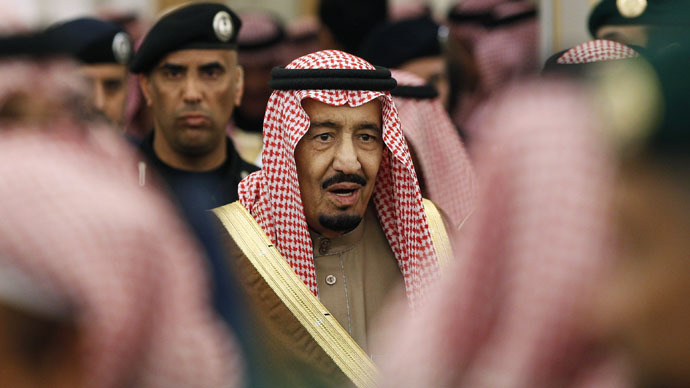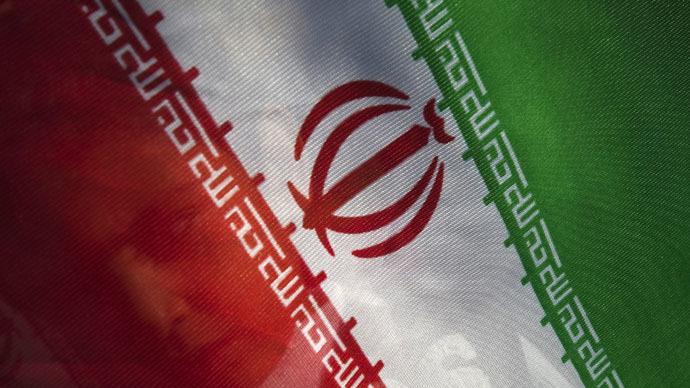‘Saudi Arabia saving democracy in Yemen? That’s a cruel joke!’

Saudi Arabia, one the most undemocratic states in the world where people have absolutely no say, is incapable of saving democracy in Yemen, said Eric Draitser, geopolitical analyst. That is an insult to the intelligence of people globally, he added.
RT:Saudi Arabia has always been shy about taking part in military action and yet it is leading a whole coalition in Yemen. What has changed in Riyadh under the new King do you think?
ED: There are two questions here. First of all the question is whether or not anything is really changed... Is really Saudi Arabia leading a coalition? I would argue that in some ways they are in name and from the public relation standpoint, but in practice not really because the Saudi military is an extension of the US military. The Saudi military employs foreign mercenaries that they pay essentially to do a lot of their dirty work. There is very real question as to the extent to which Saudi Arabia is really coordinating all of these. One the one hand is Saudi Arabia leading a coalition in practice or Saudi Arabia is leading a coalition in name - that is certainly up for debate. Secondly, there is clearly an attempt to assert a sort of hegemonic military presence from the perspective of Saudi Arabia. You’ve had political factions which have been put in place in the government in Saudi Arabia in recent months that are seeking to carve out a sort of a reputation for themselves as major military players in the region. They have always been that. But what they are trying to do now is to take on this international issue and to show themselves to be assertive and capable militarily. This is an illusion because … Saudi Arabia is deeply indebted to the US for all of its military supplies. They are indebted to US military advisers and other military advisers to be fair to show how to use the weapons, how to employ the weapons, how to do the targeting, all of that.
Saudi Arabia is also coordinating with the US on the ground in Yemen. US CIA, US military intelligence, US assets are all on the ground in Yemen providing targeting and other necessary elements of this offensive. It is somewhat of an illusion to think of this is as truly a Saudi military operation. This is international consensus that is led by Saudi Arabia nominally but is backed behind the scenes by the US, and that is really where the attention needs to be focused. What is the US is attempting to do by continuing to foment that civil war in Yemen under the auspice of protecting so-called legitimacy.
RT:The new King's son is the country's Defense Minister, who's very young. Do you think the new generation of the ruling elite in Yemen is becoming increasingly militarized in its thinking?
ED: Certainly the younger generation in Saudi Arabia is increasingly militarized. Unfortunately Saudi Arabia is not increasingly democratized - this is one of the major stories that need to be addressed. Absolutely you can see a younger generation coming into power wanting to assert themselves, shifting some of the power within the House of Saud away from the older factions toward these newer factions, various branches of this large extended family. All of that is absolutely true. I would return to that question of monarchy and the notion that Saudi Arabia, one of the most, if not the most, undemocratic states where the people … have absolutely no say in any of these moves: who is the defense minister, who is in the government, who is out of the government… Saudi Arabia is going to come in to save democracy in Yemen- this is a cruel joke, it is cruel to the people of Yemen, and it is an insult to the intelligence of people internationally. So, yes, there are changes in Saudi government but unfortunately none of those changes are democracy.

‘Pro-Israel consensus alive and well in Washington’
RT:Do you think an arms race among the Sunni states could actually start? Who would take part in it?
Eric Draitser: It depends on what we mean by an arms race. At a very basic level we should recall that it is the US which supplies the arms to the vast majority of the Sunni states- Saudi Arabia is a perfect example of that. When you had a recent deal for tens of billions of dollars, I believe, $60 billion for one year between the US and Saudi Arabia – this dwarfs military spending from almost every other country in the world.
So the entire military arsenal of not only Saudi Arabia but many other countries are entirely dependent upon the US and the notion of the arms races is already somewhat of an illusion - it is of course the US military industrial complex which benefits and which provides that military capability. What Israel is getting out with a notion of an arms race is an attempt to delegitimize the Iranian peaceful nuclear program, and attempt to essentially make Iran into the culprit, into the motivation for what they are calling “an arms race”. The reality is that Israel maintains a very, very powerful and very extensive nuclear arsenal that under no circumstances would be under threat even were the hypothetical situation of Iran having a nuclear weapon come to fruition.
RT:What about the fact that Israel doesn't even confirm that it has nuclear weapons? Can it threaten anyone with them?
ED: What Netanyahu is getting at is again the idea that Iran’s negotiated settlement is going to touch off a nuclear arms race- this is a laughable notion. What he should be commenting on, what of course he won’t be commenting on, is the fact that the real military escalation is happening in Saudi Arabia, it is happening among those Sunni states that are supported by the US. What Netanyahu is trying to propagate is the idea that Iran is the culprit of this arms race which is another laughable accusation. Israel is benefitting from spreading the idea that somehow the Middle East is going to be more unstable after a nuclear deal is reached with Iran when the inverse is really true.
RT:Do you think Israel itself will start amassing nuclear arsenals?
ED: I don’t know if necessarily the deal is going to make Israel expand its nuclear arsenal. The fact that they’ve maintained a sort of non-committal position on what exactly their nuclear arsenal is should not be taken to mean that Israel has a limited capability - they most certainly do not. Israel has probably one of the most robust nuclear arsenals in the world if you believe a lot of the rumors, a lot of information that has come out in recent years.
So whether or not Israel is going to expand its arsenal is much more in doubt. What I do think is quite clear is that Israel wants to deflect attention away from its own weapons of mass destruction and place that focus on Iran in a hypothetical scenario.
Even were the Iranians to be pursuing a nuclear weapons program - which there is no evidence that they are, according to the CIA, according to the National Intelligence Estimates compile in the US - Israel is light years ahead of the Iranians in that regard. What Israel wants to do is to distort the reality, the picture in the Middle East. There is in many ways a stability that exists at the moment. Israel wants to justify their own escalation. The extent to which they might escalate is still remains in doubt.

RT:Do you think this Iran deal will completely destroy relations between Israel and the US?
ED: Of course Israel can threaten all they want, and Israel could in a doomsday scenario employ their arsenal. I think that we should return to this question of the political support for Israel. At the moment Israel is posturing as if they are somehow are independent of the US and US policy because of this break that they’ve had with the Obama administration, but that is all very temporary. Anyone who understands US politics understands that as the elections of 2016 approach both parties are going to move closer to the Israel lobby, they are going to pander to the Israeli interests. And when that new administration takes over, be it Democrat, or Republican - chances are that relationship is going to be mended to a large extent. What Israel wants to be able to do is to justify their aggressive policy, justify aggressive rhetoric, and justify what they need for US political consumption.
RT:What about Washington. How will they respond to such statements from Israel?
ED: There are two different “Washingtons” in this equation. On the one hand, if we mean the Obama administration - they will be upset by this, and they are quite dissatisfied with Netanyahu and with the government in Tel Aviv. But Obama’s administration is ephemeral - they will be gone very soon, they will be off of the political map. Some new administration will be in its place if it is a Republican or a Democrat administration is somewhat irrelevant.
If you consider the fact that there is a Washington consensus - it is a pro-Israel consensus. And if you look just at the statements in the last week coming from both Republicans and Democrats with regard to this deal with Iran, you see reservations even from Democrats, die hard Obama supporters to get behind the Obama administration. That tells you that while the administration currently in the White House might be not 100 percent on board with Israel’s policies and Israel’s rhetoric, the political establishment more broadly certainly is. The pro-Israel consensus is alive and well in Washington.
The statements, views and opinions expressed in this column are solely those of the author and do not necessarily represent those of RT.
The statements, views and opinions expressed in this column are solely those of the author and do not necessarily represent those of RT.












